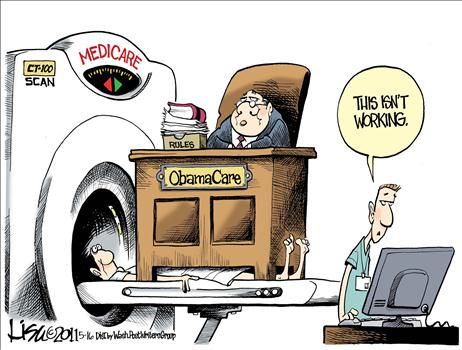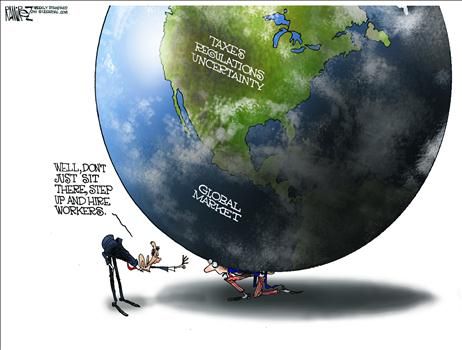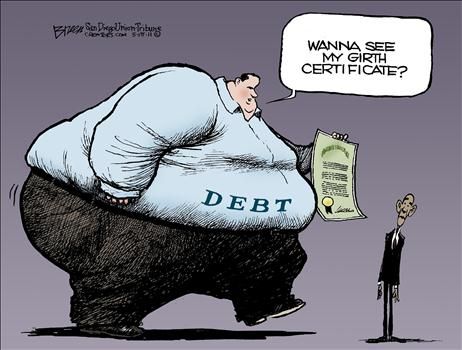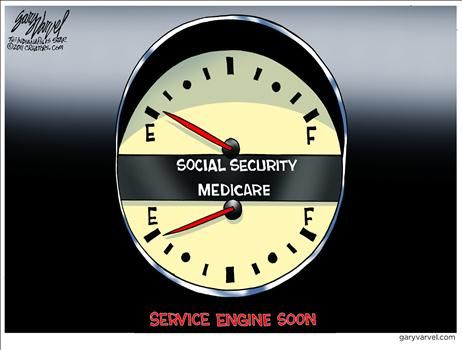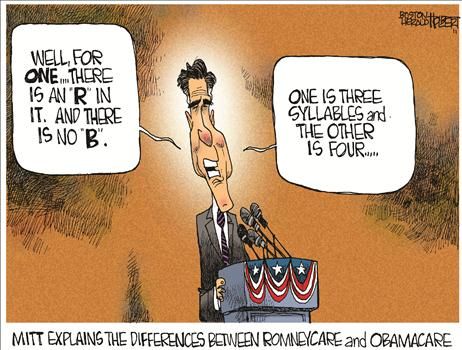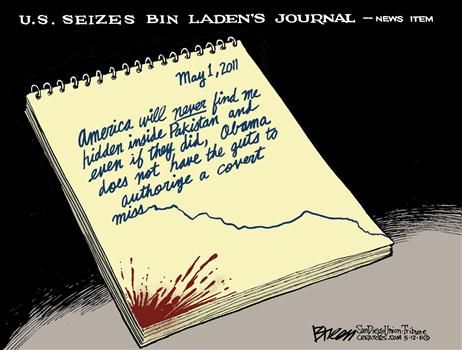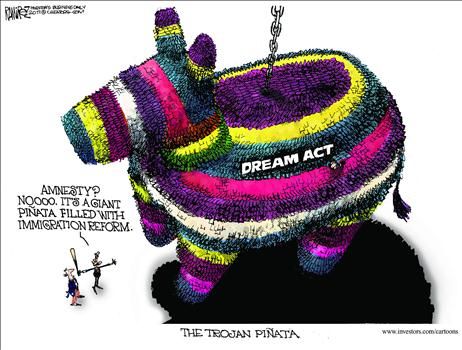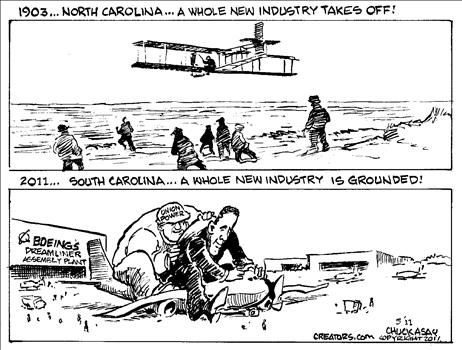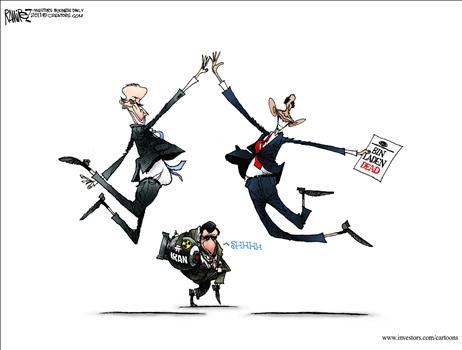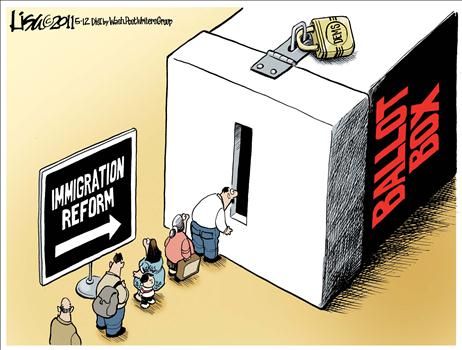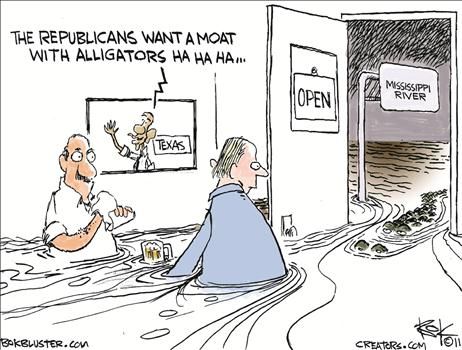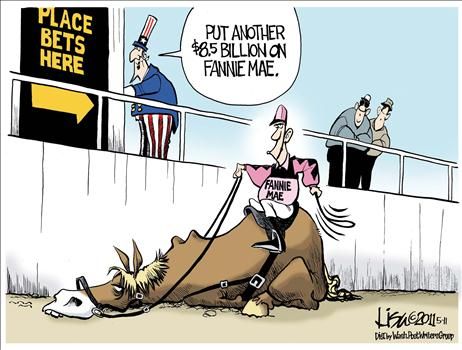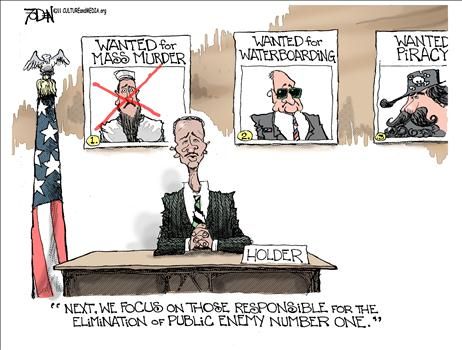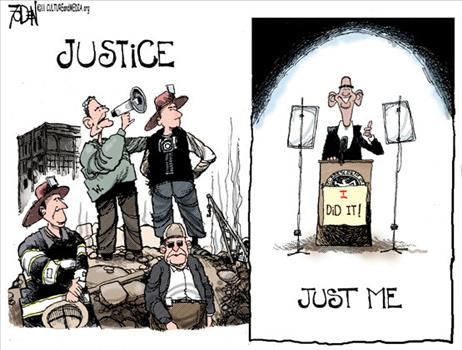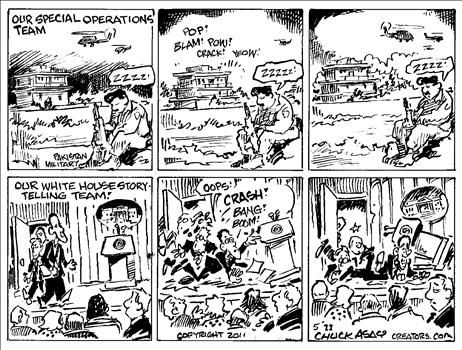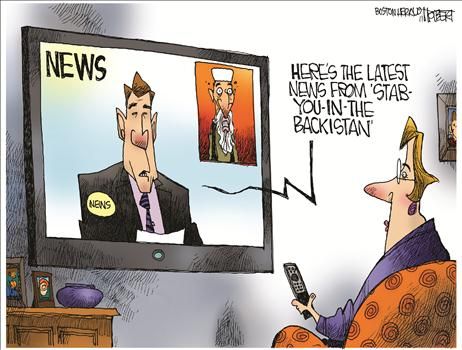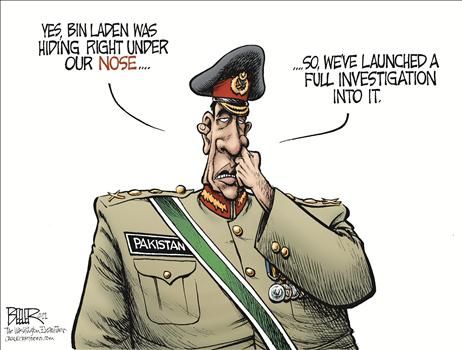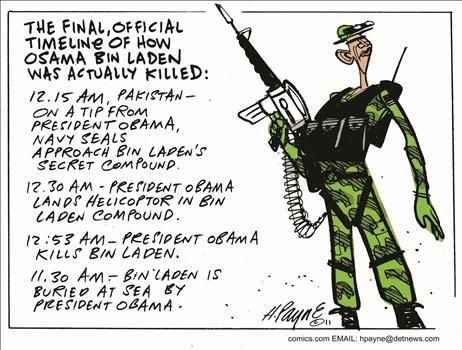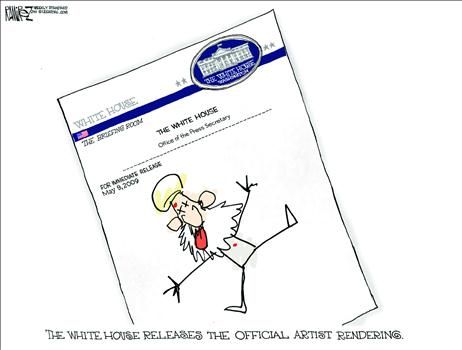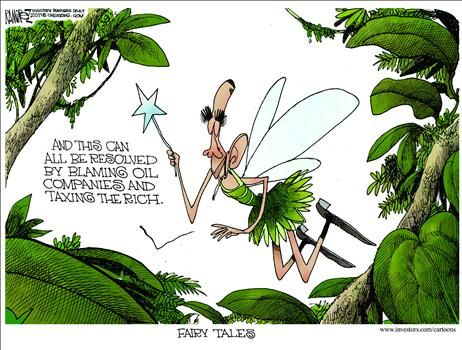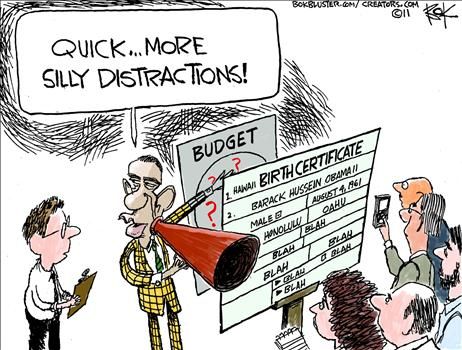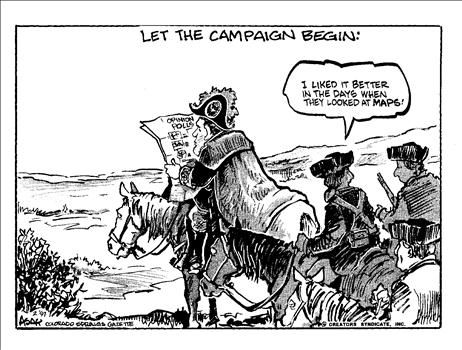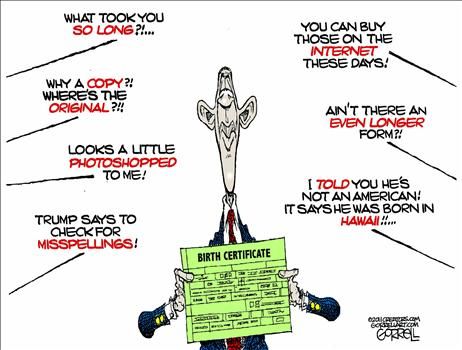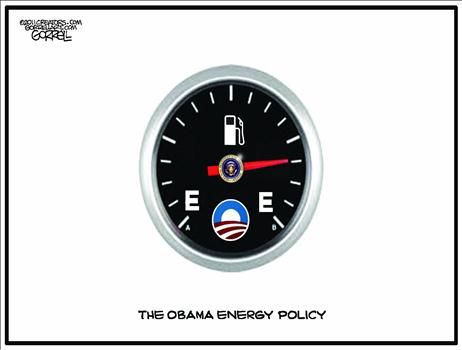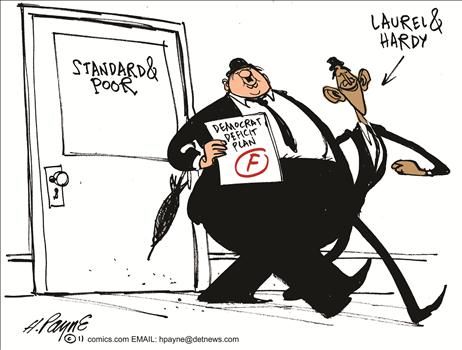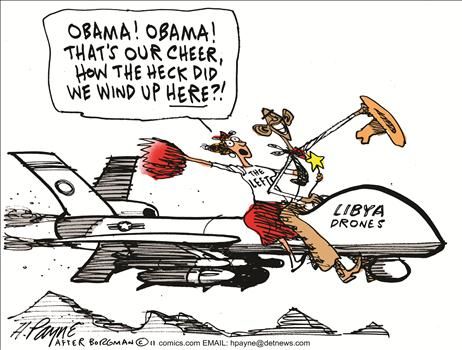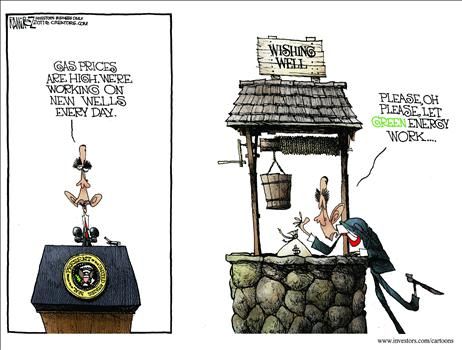From Town Hall:
Thomas Sowell
Slaves to Words
Email Thomas Sowell
Columnist's Archive
Share Buzz
digg
Sign-Up
We could definitely use another Abraham Lincoln to emancipate us all from being slaves to words. In the midst of a historic financial crisis of unprecedented government spending, and a national debt that outstrips even the debt accumulated by the reckless government spending of previous administration, we are still enthralled by words and ignoring realities.
President Barack Obama's constant talk about "millionaires and billionaires" needing to pay higher taxes would be a bad joke, if the consequences were not so serious. Even if the income tax rate were raised to 100 percent on millionaires and billionaires, it would still not cover the trillions of dollars the government is spending.
More fundamentally, tax rates-- whatever they are-- are just words on paper. Only the hard cash that comes in can cover government spending. History has shown repeatedly, under administrations of both political parties, that there is no automatic correlation between tax rates and tax revenues.
When the tax rate on the highest incomes was 73 percent in 1921, that brought in less tax revenue than after the tax rate was cut to 24 percent in 1925. Why? Because high tax rates that people don't actually pay do not bring in as much hard cash as lower tax rates that they do pay. That's not rocket science.
Then and now, people with the highest incomes have had the greatest flexibility as to where they will put their money. Buying tax-exempt bonds is just one of the many ways that "millionaires and billionaires" avoid paying hard cash to the government, no matter how high the tax rates go.
Most working people don't have the same options. Their taxes have been taken out of their paychecks before they get them.
Even more so today than in the 1920s, billions of dollars can be sent overseas electronically, almost instantaneously, to be invested in other countries-- creating jobs there, while millions of American are unemployed. That is a very high price to pay for class warfare rhetoric about taxing "millionaires and billionaires."
Make no mistake about it, that kind of rhetoric wins votes for political demagogues-- and votes are their bottom line. But that is totally different from saying that it will bring in more tax revenue to the government.
Time and again, at both state and federal levels, in the country and in other countries, tax rates and tax revenue have moved in opposite directions many times. After Maryland raised its tax rates on people making a million dollars a year, there were fewer such people living in Maryland-- and less tax revenue was collected from them.
In 2009, many people specializing in high finance in Britain relocated to Switzerland after the British government announced plans to take 51 percent of high incomes in taxes.
Conversely, reductions in tax rates can lead to more tax revenue being collected. After the capital gains tax rate was cut in the United States in 1997, the government collected nearly twice as much revenue from capital gains taxes in the next four years as in the previous four years.
Similar things have happened in India and in Iceland.
There is no automatic correlation between the direction in which tax rates move and the direction in which tax revenues move. Nor is this a new discovery.
Back in the 1920s, Secretary of the Treasury Andrew Mellon pointed out that people with high incomes were simply not paying the high tax rates that existed on paper, because they were putting their money into tax shelters.
After the tax rates were cut, as Mellon advocated, investments flowed back into the private economy, producing higher output, rising incomes, more tax revenue and more jobs. The annual unemployment rate in the next four years never exceeded 4.2 percent, and in one year was as low as 1.8 percent.
Despite political demagoguery about "tax cuts for the rich," in human terms the rich have less at stake than working people. Precisely because the rich have so many ways of avoiding taxes, a high tax rate is likely to do them far less harm than it does to the economy, on which millions of people depend for jobs.
Tags: Jobs and Economy , Taxes
Thomas Sowell
Thomas Sowell is a senior fellow at the Hoover Institute and author of The Housing Boom and Bust.
Thomas Sowell
Slaves to Words
Email Thomas Sowell
Columnist's Archive
Share Buzz
digg
Sign-Up
We could definitely use another Abraham Lincoln to emancipate us all from being slaves to words. In the midst of a historic financial crisis of unprecedented government spending, and a national debt that outstrips even the debt accumulated by the reckless government spending of previous administration, we are still enthralled by words and ignoring realities.
President Barack Obama's constant talk about "millionaires and billionaires" needing to pay higher taxes would be a bad joke, if the consequences were not so serious. Even if the income tax rate were raised to 100 percent on millionaires and billionaires, it would still not cover the trillions of dollars the government is spending.
More fundamentally, tax rates-- whatever they are-- are just words on paper. Only the hard cash that comes in can cover government spending. History has shown repeatedly, under administrations of both political parties, that there is no automatic correlation between tax rates and tax revenues.
When the tax rate on the highest incomes was 73 percent in 1921, that brought in less tax revenue than after the tax rate was cut to 24 percent in 1925. Why? Because high tax rates that people don't actually pay do not bring in as much hard cash as lower tax rates that they do pay. That's not rocket science.
Then and now, people with the highest incomes have had the greatest flexibility as to where they will put their money. Buying tax-exempt bonds is just one of the many ways that "millionaires and billionaires" avoid paying hard cash to the government, no matter how high the tax rates go.
Most working people don't have the same options. Their taxes have been taken out of their paychecks before they get them.
Even more so today than in the 1920s, billions of dollars can be sent overseas electronically, almost instantaneously, to be invested in other countries-- creating jobs there, while millions of American are unemployed. That is a very high price to pay for class warfare rhetoric about taxing "millionaires and billionaires."
Make no mistake about it, that kind of rhetoric wins votes for political demagogues-- and votes are their bottom line. But that is totally different from saying that it will bring in more tax revenue to the government.
Time and again, at both state and federal levels, in the country and in other countries, tax rates and tax revenue have moved in opposite directions many times. After Maryland raised its tax rates on people making a million dollars a year, there were fewer such people living in Maryland-- and less tax revenue was collected from them.
In 2009, many people specializing in high finance in Britain relocated to Switzerland after the British government announced plans to take 51 percent of high incomes in taxes.
Conversely, reductions in tax rates can lead to more tax revenue being collected. After the capital gains tax rate was cut in the United States in 1997, the government collected nearly twice as much revenue from capital gains taxes in the next four years as in the previous four years.
Similar things have happened in India and in Iceland.
There is no automatic correlation between the direction in which tax rates move and the direction in which tax revenues move. Nor is this a new discovery.
Back in the 1920s, Secretary of the Treasury Andrew Mellon pointed out that people with high incomes were simply not paying the high tax rates that existed on paper, because they were putting their money into tax shelters.
After the tax rates were cut, as Mellon advocated, investments flowed back into the private economy, producing higher output, rising incomes, more tax revenue and more jobs. The annual unemployment rate in the next four years never exceeded 4.2 percent, and in one year was as low as 1.8 percent.
Despite political demagoguery about "tax cuts for the rich," in human terms the rich have less at stake than working people. Precisely because the rich have so many ways of avoiding taxes, a high tax rate is likely to do them far less harm than it does to the economy, on which millions of people depend for jobs.
Tags: Jobs and Economy , Taxes
Thomas Sowell
Thomas Sowell is a senior fellow at the Hoover Institute and author of The Housing Boom and Bust.










 Anyone who interviewed John Kasich during his days in the U.S. House (1982-2000), and especially as House Budget Committee chairman (1994-2000), will recall that asking the Ohioan about budgets or spending brought forth a very lengthy answer. Along with explaining the numbers and spelling out their long-term impact, Rep. Kasich would spice his talk with references to his passion for the music of the Grateful Dead and his love of basketball and tennis.
Anyone who interviewed John Kasich during his days in the U.S. House (1982-2000), and especially as House Budget Committee chairman (1994-2000), will recall that asking the Ohioan about budgets or spending brought forth a very lengthy answer. Along with explaining the numbers and spelling out their long-term impact, Rep. Kasich would spice his talk with references to his passion for the music of the Grateful Dead and his love of basketball and tennis.